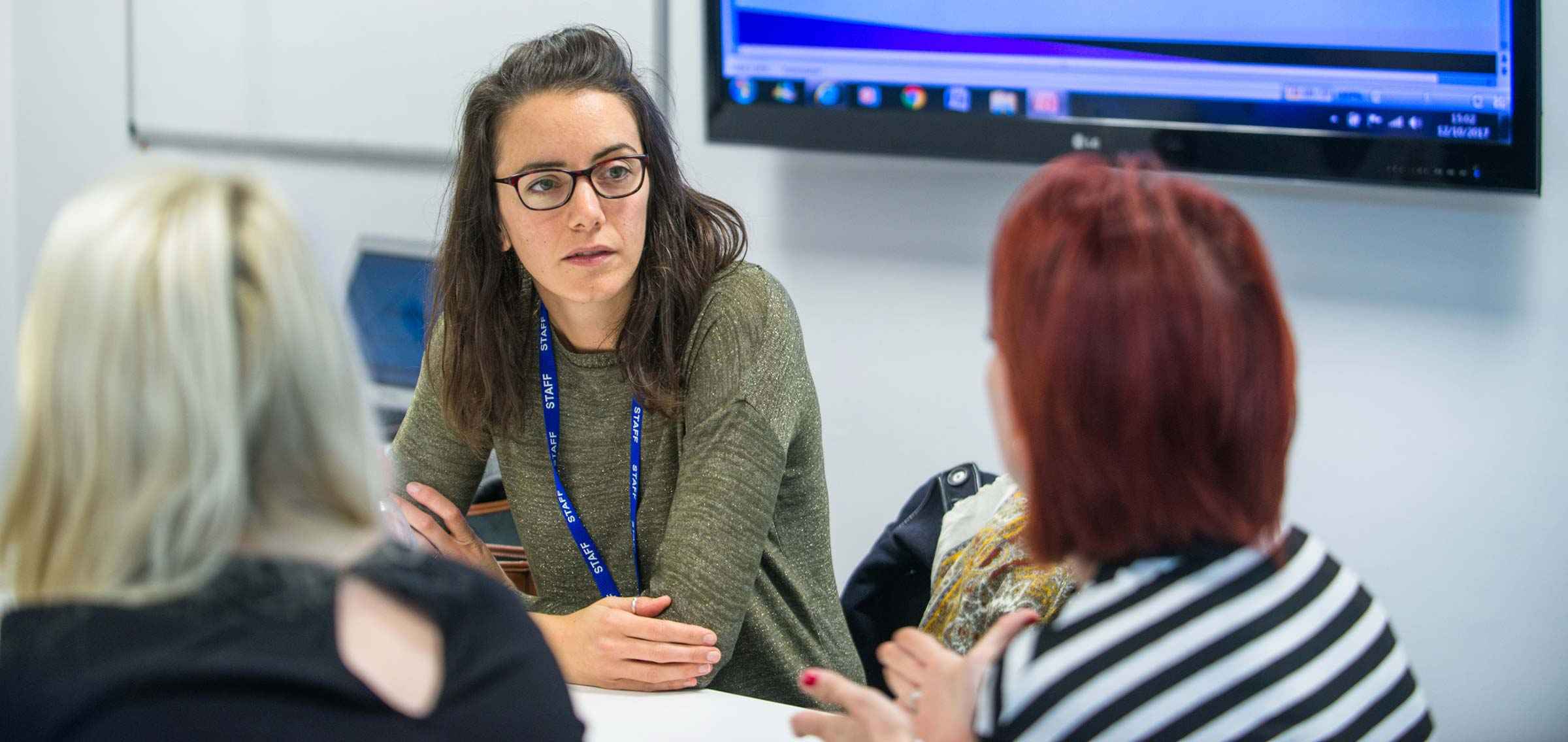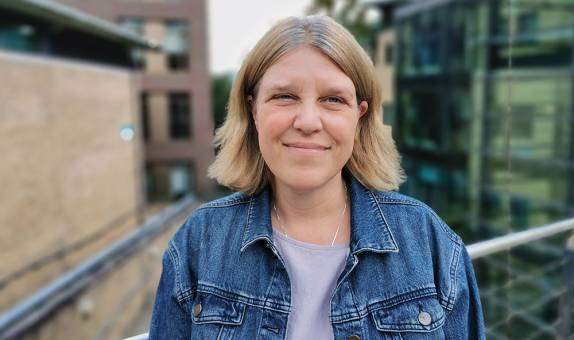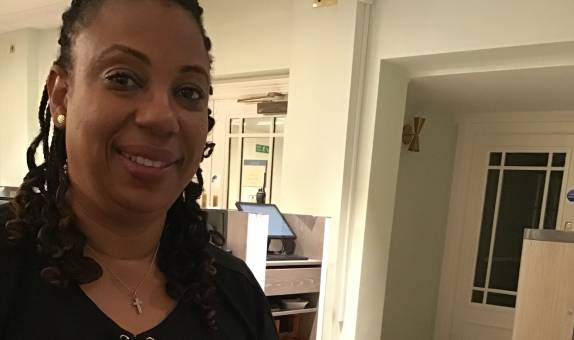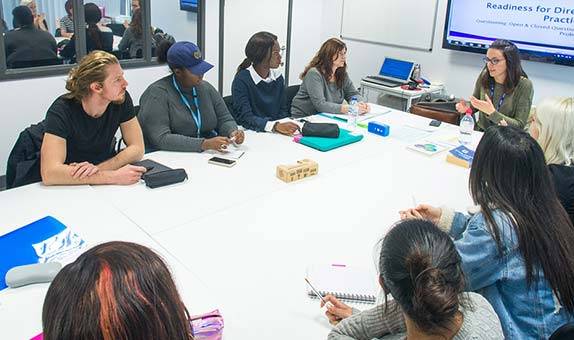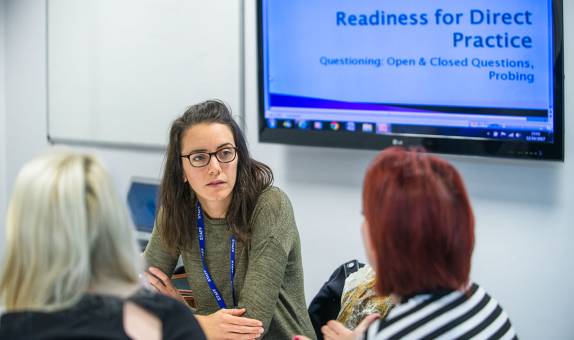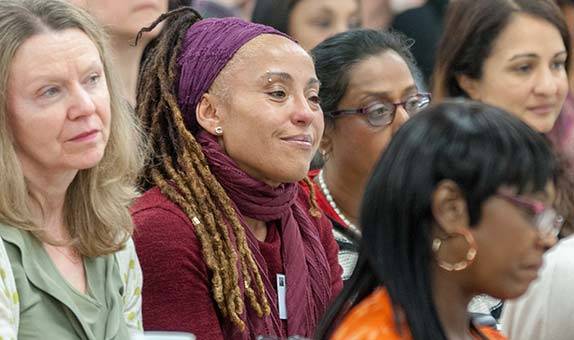Social Work (Step Up) PgDip
Why choose this course?
The Step Up To Social Work programme is a Department for Education scheme. This intensive 14-month full-time programme is for applicants who do not have a social work degree and want to become a social worker.
You will receive a £21,955 tax-free bursary (equates roughly to a £27k salary as tax free) during the programme. The course requires you to complete 170 placement days of hands-on social work practice in a local authority whilst completing academic learning at the University. You will graduate with a postgraduate diploma in social work and will be able to register as a qualified social worker with Social Work England.
This course is in partnership with Achieving for Children ( Kingston and Windsor and Maidenhead), London Borough of Sutton, Surrey County Council, London Borough of Croydon, London Borough of Wandsworth and London Borough of Merton.
Applications for this course are through the gov.uk Step Up to Social Work website, which will open in February 2025 for January 2026 intake.
| Mode | Duration | Start date |
|---|---|---|
| Full time | 14 months | January 2026 |
Applications for the January 2026 intake are expected to open in February 2025.
Visit the Step Up to Social Work website for details on how to apply for Step Up to Social Work and information on fees and support for this course.
| Main Location | Kingston Hill |
Reasons to choose Kingston University
- Through this course you will train to become a social worker in 14 months.
- During the programme you will receive a £21,955 tax-free bursary.
- The programme offers both hands-on learning and University-based academic learning.
What you will study
You will gain a thorough grounding in the theory and approaches which underpin the professional discipline of social work and develop the knowledge and skills to practise as a social worker.
Year 1
Year 2
In Year 1, you will develop your knowledge and skills to prepare for your first placement.
Core modules
Readiness for Direct Practice
30 credits
This module runs throughout the first year and focuses on readiness for direct practice. It is an interactive module which includes skills workshops and a high level of involvement from service users, carers and practice educators from partner agencies. You will learn about the role and tasks of social workers and develop professional skills in verbal and written communication. You will have the opportunity to receive formative feedback on written work and on your communication skills. People with lived experience and carers provide simulated interviews in the Practice Learning Suite.
First Placement
30 credits
This module is a practice placement of seventy days, undertaken in an agency within the statutory or voluntary sector. We organise this placement for you, with the help of our Developing Together Social Work Teaching Partnership. You will be working alongside qualified social workers and social care staff, and provided with learning opportunities. You will be supported and supervised by practice learning staff in your placement setting. You will be expected to evidence your developing practice throughout your placement, which will be assessed against the Professional Capabilities Framework (PCF).
Becoming a Social Worker
30 credits
This module is designed to provide a general introduction to social work theory, law and policy. The module will enable students to develop theoretical foundational knowledge of social work assessment and intervention, legislation and policy which underpin social work practice. Students will be introduced to key children and adult legislation alongside an introduction to safeguarding and assessing risk which will equip students with knowledge for their first placement.
Human Development and the Social Environment
30 credits
This module will enable you to gain an understanding of human development that is underpinned by the value of difference and diversity. A life course perspective will inform the content of the module, incorporating key theoretical frameworks and research findings. There will be a critical focus on the interaction of social, political, cultural, economic and environmental influences on people's lives. Ideas of normative development, including key milestones in childhood and adolescence, will therefore be underpinned by a critical understanding of structural inequalities, which may affect individual development and perpetuate the difficulties experienced by some groups and communities. Relevance to social work will be highlighted through case studies, targeted reading, and facilitated discussions. Experiential and reflective learning will be promoted through a structured child observation task and reflective seminars.
In Year 2, you will build on the knowledge and skills from your first practice placement and learn how to critically analyse social work theory, legislation, and research to inform social work practice.
Core modules
Second Placement
30 credits
This module is a final practice placement of one hundred days, undertaken in an agency within the statutory or voluntary sector. We organise this placement for you, with the help of our Developing Together Social Work Teaching Partnership. You will be working alongside qualified social workers and social care staff, and provided with learning opportunities to develop your autonomous practice. You will be supported and supervised by practice learning staff in your placement setting. You will build on your previous placement experience and knowledge, and continue to evidence your practice to meet the requirements of the Professional Capabilities Framework (PCF) at the final placement level.
Advanced Knowledge for Social Work Practice
30 credits
This module builds on the learning from SW7047 (Becoming a Social Worker) and further develops critical understanding of law and social policy relevant to child and family social work, together with theories and methods to inform social work interventions. Students will gain an understanding of the thread between law and social policy and how decision making occurs within complex systems where social workers often face competing imperatives. Students will develop a robust awareness and nuanced understanding of theories and methods to navigate this practice terrain. This module will draw on both practice learning experiences (from students' first practice placement) and module material to develop the knowledge and skills required to work collaboratively while ensuring risk assessment, decision making, and interventions are informed by evidence.
Critical Analysis of Research, Ethics and Practice
30 credits
This module is undertaken alongside the final practice placement of 100 days enabling the integration of research and academic learning with placement learning and experiences. Drawing on students' current practice, this module enables students to further develop their ability to critically analyse how social work models, research, and theories inform planning, assessment, and interventions for ethical social work practice.
The assignments will assist students to evidence Social Work England Professional Standards (SWEPS) and the Professional Capabilities Framework (PCF) at the standard required for students at the end of their final placement.
Entry requirements
Teaching and assessment
You will be learning through lectures, seminars and workshops with case studies and group work activities. You will develop your knowledge and skills through simulation activities in the Practice Learning Suite with people with lived experience and practice educators.
You will have two placements, supported by practice educators to enable you to reflect and critically analyse your practice through supervision.
Who teaches this course?
Every member of the teaching staff has substantial practice experience in social work. In addition, many are actively involved in social work research, presenting regularly at conferences and publishing in books and journals. In addition, our course teams draw on the wealth of experience provided by our professional contacts and service users and carers who feed into the design of our courses and provide teaching and supervision to enrich your learning.
Course fees and funding
After you graduate
On completing the course you will be eligible to apply to the Social Work England to register as a social worker.
Employment opportunities are available in:
- Children's services and family support
- Community care and adult services
- Adult/youth criminal justice services
- Community, day, residential and health settings
- Mental health, disability, learning disabilities, older adults, addictions, and forensic services
- Portable social work qualification that you can use to work overseas
- Post-qualifying programmes available
Good career development opportunities and post-qualifying training and awards are now an established part of the social work profession.
Links with business and industry
Developing Together Social Work Teaching Partnership
We provide social work education in partnership with a diverse range of local authorities and voluntary sector organisations called 'Developing Together'. This provides strong and mutually supportive relationships between the University and social work employers.
Additional costs
Depending on the programme of study, there may be extra costs that are not covered by tuition fees which students will need to consider when planning their studies. Tuition fees cover the cost of your teaching, assessment and operating University facilities such as the library, access to shared IT equipment and other support services. Accommodation and living costs are not included in our fees.
Where a course has additional expenses, we make every effort to highlight them. These may include optional field trips, materials (for example, art, design, engineering), security checks such as DBS, uniforms, specialist clothing or professional memberships.
Social Work Skills Lab
The skills lab is a purpose-built facility where social work students have the opportunity to learn and to practise key social work skills.
Social workers undertaking continuing professional development courses develop their assessment and intervention skills and other skills such as mentoring, teaching and providing reflective supervision.
What's available?
The skills lab is divided into several sections including:
- a seminar/case conference room for a maximum of 20 people;
- a simulated living-room and front door to assist in developing skills relating to home visits;
- five interview rooms simulating work environments;
- a control room with two-way mirror and viewing monitors; and
- all rooms have fitted cameras and microphones so that activities can be recorded.
A flexible, creative space
The skills lab has been designed to be a multi-functional space which allows flexible use. The furniture is all portable and can be changed according to the simulated activities required.
The small rooms can be used for practising communication skills and simulating supervision sessions.
The large room can be used as a teaching or seminar room and can be set up as a simulated case conference room or duty desk.
Participants have the opportunity to engage in creative skills development activities and benefit from live supervision and feedback from the recorded material.
Current research in this subject
Many of our staff are research active, often in partnership with NHS Trusts. This ensures they are in touch with the latest thinking and bring best practice to your studies.
Social work research activity focuses around several key areas:
- risk and child abuse
- children's rights
- learning processes and partnership approaches in professional education
- management of child protection systems
- safeguarding adults
- mental capacity
- effectiveness of community-based responses to crime.
We conduct much of our social care research and consultancy either in partnership with or on behalf of the social service, voluntary sector and probation agencies.
Course changes and regulations
The information on this page reflects the currently intended course structure and module details. To improve your student experience and the quality of your degree, we may review and change the material information of this course. Course changes explained.
Programme Specifications for the course are published ahead of each academic year.
Regulations governing this course can be found on our website.
